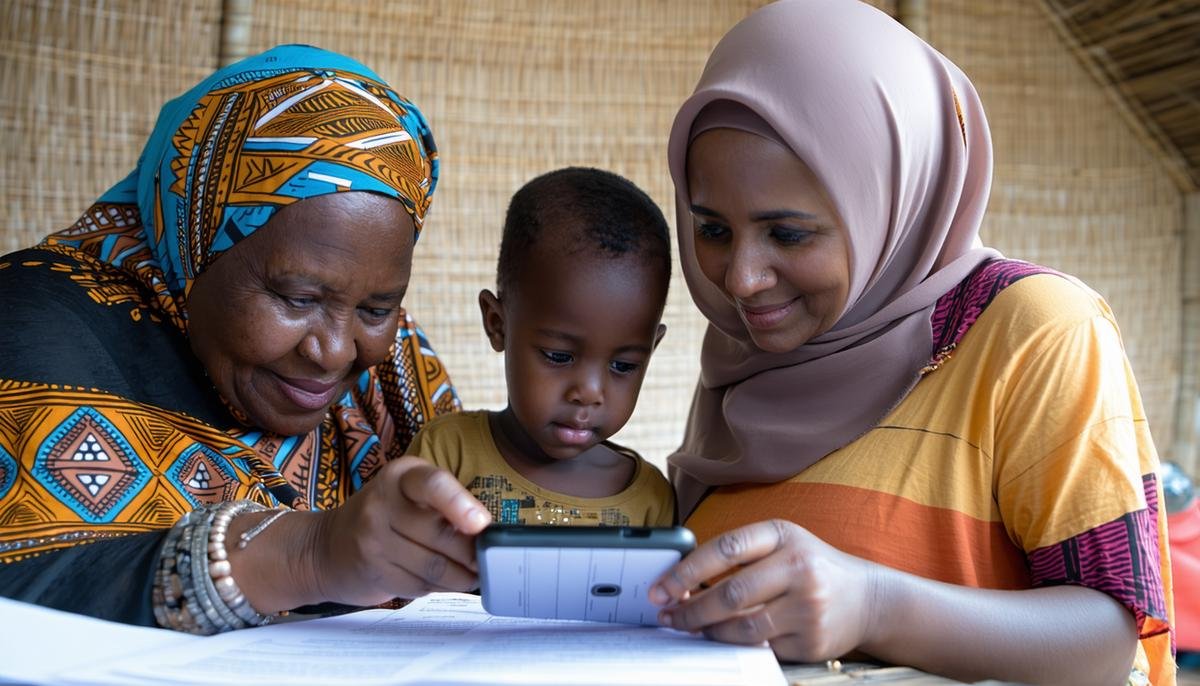AI in Humanitarian Aid
Artificial Intelligence is revolutionizing humanitarian aid efforts worldwide. In Ukraine, LifeForce Ukraine leverages technology to provide real-time access to essential services across over 37,000 locations. This innovative platform matches civilians with:
- Food
- Shelter
- Medicine
- Healthcare
Eureka, an intelligent personal assistant, simplifies the integration process for refugees by guiding them through complex bureaucracy. Meanwhile, Witness Ukraine offers a platform for civilians to document their experiences, preserving crucial stories and aiding in the pursuit of justice.
The power of collective efforts is demonstrated by Economists for Ukraine, which unites academics to work towards ending the invasion and planning for future rebuilding efforts.
AI for Refugee Assistance
Eureka exemplifies the potential of AI in assisting refugees globally. This intelligent personal assistant guides users through:
- Complex paperwork
- Legal requirements
- Community resources
By simplifying these processes, Eureka significantly reduces the emotional and mental burdens refugees face, providing a clear roadmap to achieve stability in their new homes.
This application highlights a growing trend of using AI to address social issues, empowering those in vulnerable situations. The impact of such technologies is measured not just in successful integrations, but in the renewed confidence they grant individuals facing challenging circumstances.

AI in Climate and Environmental Solutions
AI applications are making significant strides in addressing environmental challenges:
- Flood forecasting: AI-powered platforms predict riverine flooding up to a week in advance, enabling coordinated evacuations and resource deployment.
- Wildfire tracking: AI analyzes datasets to predict fire paths, aiding in evacuation plans and resource allocation.
- Coral reef preservation: Projects like Google's Project Contrails use AI models to expedite solutions for protecting coral ecosystems.
These applications demonstrate AI's crucial role in developing proactive strategies for both immediate responses to natural disasters and long-term ecological resilience.

AI in Economic Development
Initiatives like the Google.org AI Opportunity Fund and Grow with Google are driving economic growth through AI skills training and support for small businesses. These programs focus on:
- Bringing AI skills training to rural and underserved communities
- Upskilling individuals to meet job market demands
- Supporting small businesses in integrating AI into their operations
For instance, Google.org has provided funding to America's SBDC for the creation of AI U, a platform designed to help small enterprises leverage AI effectively. These initiatives illustrate AI's role in fueling economic development and ensuring inclusive growth across various sectors and communities.

AI in Healthcare Advancements
AI is driving remarkable advancements in healthcare, particularly in diagnostic accuracy and access:
- Breast cancer screening: AI integration allows radiologists to identify carcinomas more swiftly and precisely.
- Diabetic retinopathy detection: Initiatives like Google's ARDA use AI to screen for the disease earlier than conventional methods.
- Maternal and fetal healthcare: Google's ultrasound AI tools improve diagnostic accuracy in areas where skilled professionals are scarce.
These implementations represent AI's potential to enhance patient care standards and improve health outcomes worldwide, particularly in underserved areas.

AI in Social Issues and Advocacy
Projects like OATH-Frames demonstrate AI's potential in addressing social issues and supporting advocacy efforts. This initiative uses large language models to analyze social media conversations about homelessness, categorizing perceptions and responses into a comprehensive typology.
"The state of homelessness in the U.S. is largely influenced by social and political factors, which sparks a diverse spectrum of attitudes on social media," says Jaspreet Ranjit, a PhD student working on the project.
By processing massive datasets quickly, AI provides timely insights that can influence public opinion and policy-making. OATH-Frames exemplifies how AI can amplify the effectiveness of advocacy efforts and encourage informed dialogue around complex social issues, serving as a catalyst for societal advancement.
AI is reshaping how we address global challenges, offering practical solutions in fields like humanitarian aid, environmental protection, and healthcare. As we continue to develop this technology, its potential for positive change remains significant, paving the way for innovative approaches to complex problems. The collaboration between AI researchers, domain experts, and policymakers will be crucial in ensuring that these technological advancements translate into meaningful societal benefits.
- Ranjit J, et al. OATH-Frames: Characterizing Online Attitudes Towards Homelessness via LLM Assistants. ShowCais 2024.
- Los Angeles Homeless Services Authority. 2023 Greater Los Angeles Homeless Count Results. 2023.
- Google Research India. AI for Social Good: Research and Impact. 2019.
- Google.org. AI Impact Challenge. 2019.



